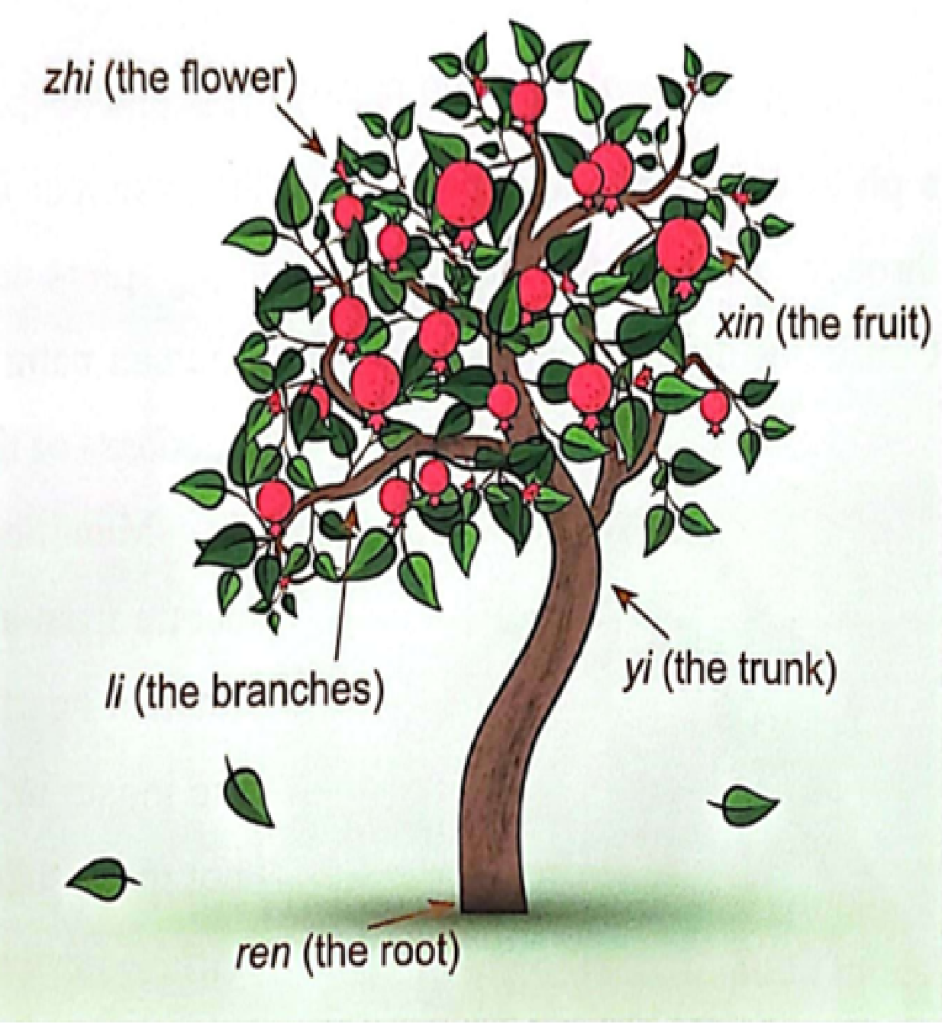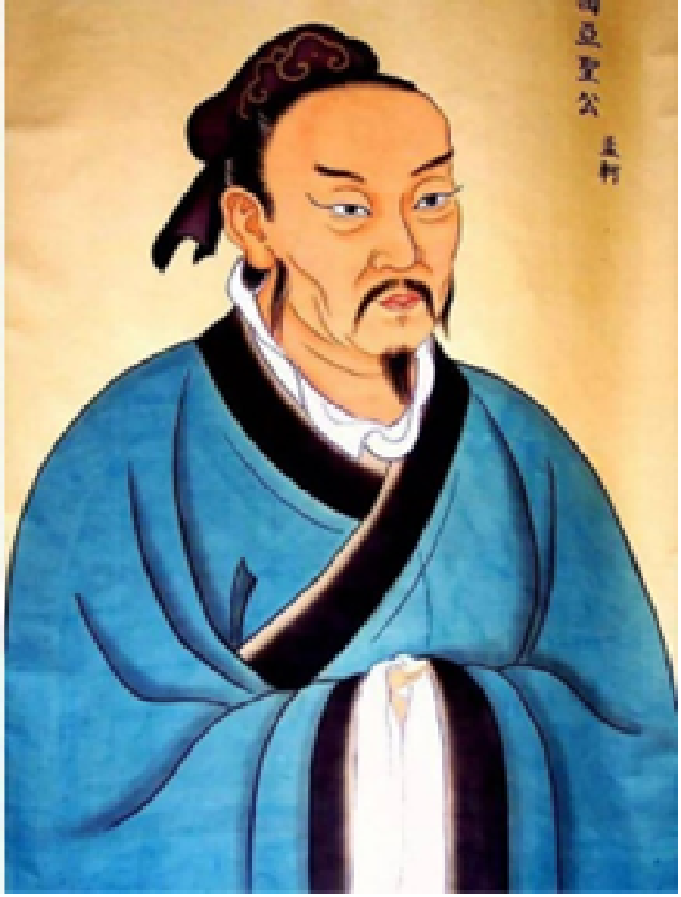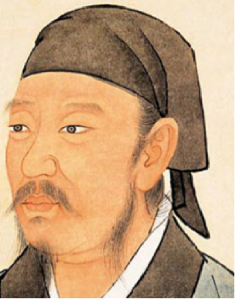1. Confucius and Confucianism
Confucius, also known as Kong Fuzi or Kongzi, was a Chinese philosopher, teacher, and politician who lived during the Spring and Autumn period (770-476 BCE). His political beliefs and teachings later turned into a philosophical school and formed the foundation of Confucianism is a school of thoughts rooted in the teachings of Confucius and is one of the most influential philosophical and ethical systems which have had a deep influence on the culture of China, Asian, and even the world. Confucianism emphasized the importance of moral virtues, social harmony, and ethical conduct as fundamental elements of a just and well-ordered society.
1.1 Confucius
Confucius (551-479 BCE) was born into a noble, but financially declined, family in the state of Lu (modern-day Shandong, China). His father died when he was three years old, so his mother brought him up. He dedicated his life to the pursuit of moral and social harmony. Although Confucius failed in his pursuit of politics, his career as a teacher and philosopher was a tremendous success. He had over three thousand students, seventy-two of whom became well-established scholars or govern officers in the history of China. As a result, Confucius was declared as the “First Teacher” (先师), the “Greatest Sage” (至圣), and the “Model Teacher for Ten Thousand Generations” (万世师表) long after his death. Confucius stands out as the most significant figure in Chinese history, whose ideas have been taught not only all traditionally educated Chinese but also to people in other Asian countries, such as Japan, Korea, and Singapore, and to other people out of Asia.
The Confucius Temple, located in Qufu of Shangdong Province, is one of the largest ancient building complexes in China. It includes nine courtyards, four hundred and sixty halls, pavilions, and rooms. In 1994, The Confucius Temple was listed as one of the UNESCO World Heritage Sites. Although Confucius is often respected in a religious manner by Chinese people, his thought is not a religion.
1.2 The Theme of Confucianism
Confucius’ teachings, compiled in the Analects (论语 Lúnyǔ), reflect his thoughts on ethics, family relationships, and governance. Confucius advocated for the cultivation of virtues such as benevolence, filial piety, and righteousness, believing that individuals practicing these virtues would contribute to a harmonious and prosperous society. The theme of Confucianism revolves around the principles and values advocated by Confucius. Central to Confucian thought is the concept of ren (仁), often translated as “benevolence” or “humaneness,” which emphasizes the importance of compassion and empathy in human interactions. Confucius said, “A man of ren, wishing to establish his own character, also establishes the character of others, and wishing to be prominent, also helps others to be prominent. ” In the end, when all were ren, there would be self-perfection, family harmony, social order, and world peace. For Confucius, the perfect individual is the superior man or the junzi (君子). Such a man was “wise, benevolent, and courageous”. The superior man was motivated by the way of righteousness instead of profit, studied the Way, and loved man.

The five constant virtues
Confucianism also underscores the significance of the Five Relationships (wulun, 五伦). Wulun emphasized the duties and obligations which society imposed upon its members. The five relationships include those between Monarch and Minister; Father and Son; Husband and Wife; Elder and Younger brother; and Friends and Acquaintances. Each of these human relationships implies not only duties and obligations, but also a sense of reciprocity. A monarch should care for his ministers while the ministers show loyalty; a son owes his father filial duty, but in turn, the father provide support, instruction, guidance, and protection; a wife must follow her husband, but the husband must provide support, loyalty, human treatment, etc. Confucius explained his doctrine of reciprocity: “Do not do to others what you would not want others to do to you.” These relationships are seen as the building blocks of a well-ordered and morally grounded society.
The main principles of Confucianism consist of the three cardinal guides and the five constant virtues (三纲五常). The three cardinal guides come from the five ethical relationships: monarch guides minister, father guides sone, and husband guides wife. The five constant virtues are 1) ren (仁), benevolence to others; 2) yi (义), righteousness by justice; 3) li (礼), etiquette and moral conduct; 4) zhi (智), wisdom; 5) xin (信), faithfulness. The picture illustrated the five constant virtues: The main focus of Confucianism is the Man in society. In addition to the five constant virtues and the three cardinal guides.
1.3 Confucians
Confucianism has had a profound impact on Chinese culture and has attracted a community of followers known as Confucians. Confucians are individuals who adhere to the teachings of Confucius and seek to apply these principles in their personal lives and societal roles. Throughout history, Confucianism has been embraced by scholars, officials, and leaders, influencing governance, education, and social norms. Confucianism’s enduring legacy is evident in its continued influence on East Asian societies, shaping ethical values and social structures. There were two prominent Confucians, Mencius and Xunzi who had a debate on human nature and how to foster good man.


The portraits of Mencius (left) and Xunzi (right)
Mencius, also known as Mengzi (孟子), was a prominent Chinese philosopher (approximately 372–289 BCE), after Confucius himself. Regarded as the “Second Sage” (亚圣) in Confucianism, Mencius significantly contributed to the development and elaboration of Confucian thought. His teachings are compiled in the book bearing his name, the “Mencius.” Mencius expounded and expanded upon the ethical and moral principles introduced by Confucius, emphasizing the innate goodness of human nature. Central to Mencius’s philosophy is the belief that individuals possess an inherent sense of compassion, and by nurturing this inherent quality through education and self-cultivation, they can achieve moral excellence. Mencius’ ideas, particularly on the importance of cultivating one’s moral nature, had a lasting impact on Confucianism and Chinese philosophy. His insights continue to be influential in discussions on ethics, governance, and human nature in both traditional and contemporary contexts.
Xunzi, or Xun Kuang (荀子), was a prominent Confucian philosopher who lived during the Warring States period of ancient China (c. 310–235 BCE). A key figure in the Confucian tradition, Xunzi’s ideas offered a distinct perspective on human nature and ethics, different from the views of Mencius, another influential Confucian thinker. Xunzi was known for his emphasis on the necessity of rigorous moral education and social rituals to shape human behavior. Contrary to Mencius, Xunzi believed that human nature is inherently selfish and inclined towards desires. He argued that individuals need proper guidance and external influences, such as education and rituals, to cultivate moral virtues and maintain social order. Xunzi’s contributions are compiled in the work “Xunzi,” which explores his thoughts on ritual, music, governance, and the rectification of names. His philosophical stance provided a counterpoint to other Confucian perspectives, contributing to the richness and diversity of Confucian thought in ancient China.

